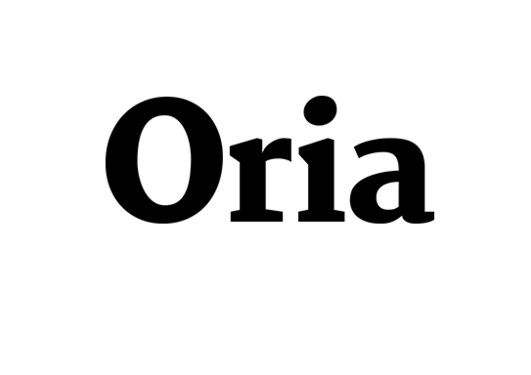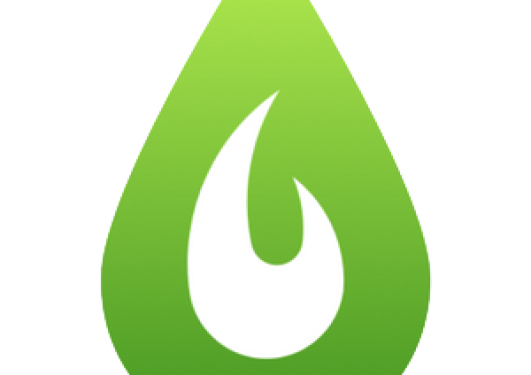BrowZine - e-shelf for e-journals
BrowZine is a platform that gives you easy access to e-journals in your field of interest. Available in a web browser or as an app.
Main content
The University Library has access to BrowZine, a tool where you can browse, read, and follow the scholarly journals to which UiB subscribes. It provides a unified interface for titles from multiple databases and publishers, both large and small.
With BrowZine, you no longer have to visit Springer, Taylor&Francis or Wiley separately in order to check the latest issues of your favorite journals. They are all gathered in one place and available from any device.
On this page you will find the basic information about BrowZine, along with tips and links to support materials prepared by the developer.
Audience
Who can use BrowZine?
BrowZine can be used by all our patrons.
Who can benefit from BrowZine?
Although BrowZine is a product primarily designed for faculty and researchers who wish to stay updated in their field of expertise, other users can also benefit from its convenient interface and browsing capabilities.
I’m not a scholar, can I still use BrowZine?
Absolutely! Whenever you are curious about developments or simply want to keep track of what is happening in your field of interest, BrowZine is a tool for you!
You may also find it handy while writing a Master or Bachelor thesis, as well as when working on group projects and other student assignments.
How to use BrowZine?
BrowZine is quite intuitive and easy to use. To get acquainted with the solution and its basic features, we recommend watching the following tutorial video about BrowZine from Third Iron.
Account / User profile
Do I need to have a BrowZine account?
You can navigate and browse the platform without an account/profile. A BrowZine account is only required if you want to use the personalization features or synchronize data across devices.
What can I do with BrowZine account?
With a BrowZine account/profile you can create collections of favorite titles, track new releases, set up email notifications, and save articles on a reading list.
Note that a BrowZine account does not grant you access to PDFs and full text articles. You must connect to the UiB network to access the content that UiB subscribes to.
See also:
Is BrowZine account the same as UiB-account?
No, your BrowZine account is different from your UiB-account. It is your private account, and you can use any email to create it.
What happens with my BrowZine account when I am no longer a student/employee?
BrowZine accounts are not connected to UiB accounts. Your BrowZine account will remain active even if you are no longer affiliated with UiB. However, your access privileges to various IT systems and services at UiB (such as access to VPN and paywalled electronic literature) will disappear.
See also:
I have forgotten my BrowZine password - what do I do?
You can restore your password on the BrowZine password reset page.
Access
How can I access BrowZine?
You can access BrowZine through the link in the article record on the results list in Oria, or go directly to BrowZine.com. The website should recognize you as a UiB-user, otherwise you will be prompted to choose your library from a list of institutions. If that’s the case, just type "Bergen" and select University of Bergen from the list.
Can I access articles via BrowZine?
BrowZine provides direct links to articles and other resources, but you must be connected to the UiBs-network to access the majority of them.
See also:
Costs
Do I need to pay to use BrowZine?
BrowZine is available for free to all our users.
Why am I being asked to pay for an article I found in BrowZine?
If you encounter a paywall after accessing an article via BrowZine, it could indicate that UiB does not have access to that particular resource. Another possibility is that you're not connected to the UiB network, which prevents the provider from recognizing you as a UiB user. There could also be a technical issue. If you suspect an error, try accessing the article using alternative links in Oria.
Content, Coverage and Updates
What can I find in BrowZine?
Most of the electronic scholarly journals that UiB subscribes to, including their Table of Contents, should be available in BrowZine Library.
Why is a journal title missing in BrowZine?
If a subscribed journal title is missing in BrowZine, it may be due to insufficient metadata or other technical issues. For example, journals without ISSN numbers are likely to be missing in BrowZine, but you can still access them via Oria using the journal search feature and A-Z List.
BrowZine is designed with peer-reviewed journals in mind, so this might be another reason why a title isn't listed. To read popular magazines, non-scholarly journals and newspapers, please use Press Reader.
See also:
When can we expect a newly acquired journal to show up in BrowZine?
Information about the library’s inventory is harvested automatically by BrowZine. Newly added titles should be available at the beginning of the week. The same applies to any updates, changes or adjustments to the coverage.
When can we expect new issues and articles to show up in BrowZine?
Journal content update schedules depend on agreements between BrowZine and publishers. If you notice content that is not up to date, please let us know.
Search
Can I search in BrowZine?
You can search for journals (by title, ISSN, or subject), and browse their contents.
See also:
Can I search for articles in BrowZine?
BrowZine is not searchable by keyword or phrase and will not return results like a typical database. For article search, please go to our discovery system – Oria.
Articles
Can I read articles in BrowZine?
BrowZine provides direct links to articles and other resources. It plays the role of a gateway, rather than a full text reader.
Remember that to access the literature UiB subscribes to, you must connect to the UiB network.
Are article abstracts available in BrowZine?
Some journals (e.g. PloS Medicine) may contain article abstracts. If available, abstracts are shown directly below the article in the Table of Contents view in BrowZine.
Does BrowZine contain the in Press/Ahead-of-Print content?
Many publishers make articles available before they are formally assigned to a volume and issue. If articles in press are available, they will show as such in BrowZine. You will find them in the section for new articles, categorized as "Articles in Press".
See also:
Citations
Can BrowZine export citations?
You can export citations to RIS file. Additionally, BrowZine supports and can be directly connected to Zotero, Mendeley, BibTeX and RefWorks. For this to work, you may need to grant BrowZine permission to access your citation manager.
See also:
How can I manage or disconnect my Citation Manager from BrowZine?
If you have connected your BrowZine account to a Reference Management Software, you can manage it through "Settings" in BrowZine.
See also:
The BrowZine App
How do I download the BrowZine app?
BrowZine is available for download for Android and iOS mobile devices. You can find it in the application store on your device, or use the direct links provided by the developer at thirdiron.com/download
Is the BrowZine app free?
The app is free to use and download.
Can I use the BrowZine App offline?
The app requires online access to work properly.
Accessing articles via BrowZine App takes a lot of time. Why?
We have noticed that the authentication and user recognition can take longer time in the BrowZine App than in BrowZine Web. If you have recurring problems accessing your journals outside campus, please let us know.
Errors, Messages and Notices
I have found an error in BrowZine. How can I report it?
If you have found an error in BrowZine (for example concerning linking or coverage), you can let us know about it using the contact form in UiBhjelp. We will either solve the problem locally or pass the case to the developer (Third Iron).
For interface, performance, or functionality issues, you can contact Third Iron directly at support@thirdiron.com or through the Support module in the BrowZine app.
See also:
I can’t find my favorite journal in BrowZine. Why?
There may be several reasons why a title is missing in BrowZine. We have described them in the section concerning Content, Coverage and Updates.
See also:
"This issue contains no full text" – why is that?
The "This issue contains no full text" message means that we subscribe to the journal, but the content is not yet accessible for us.
Some resources may contain journals with an embargo period. These embargoes provide only index information for newer issues but do not contain full text until weeks, months or years after they were originally published.
"No Full Text available after [date]" – what does it mean?
You may encounter several messages and notices in the BrowZine environment. The "No Full Text available" message means that our library does not have access to the full content via our subscriptions.
"Retracted Article" – what does this mean?
When searching for literature, you may come across an article that has been retracted. This means that the article is no longer considered reliable or valid. LibKey and BrowZine has partnered with Retraction Watch to keep track on retracted articles.
When an article is retracted, a notice about it will appear in BrowZine (or in Oria). When you open a link to a retracted article, you will be redirected to a LibKey-powered page and presented with a link to the article, as well as additional information such as: official retraction notices from the publisher, related articles from Retraction Watch, and reasons for retraction.
Here is an example of a retracted article. For more information about this matter, please visit the developer's support pages.
"Expression of Concern" – what is this?
Expression of Concern (EOC) is issued by journal publishers or editors when concerns have been raised about an article's findings or methodology. It mainly serves as a warning to readers. Sometimes the EOC is a first step before an article is retracted, while other times the EOC will remain to clarify concerns about the article.
When you see a "concern message" attached to an article in BrowZine (or in Oria), it does not mean that the article is invalid, but it signals that you should critically evaluate the findings and perhaps seek additional sources. These messages are highlighted by the system to help you be aware of any doubts about research integrity.
Information about EOC comes automatically from LibKey and is based on data from journal publishers.
Here is an example of an article with EOC. For more information about this matter, please visit the developer's support pages.
More information
Where can I learn more about BrowZine?
We have tried to cover the most important topics in our article. However, if you are in need for more information, please visit the developer's (Third Iron) support portal. Here are some popular BrowZine support articles that you may find interesting. They are all available in English:
What is LibKey?
Sometimes when you click on links in BrowZine (or in Oria), you may see a LibKey-powered page before you reach the full text of the article. Don’t panic, it’s totally normal.
LibKey is another solution from Third Iron that the University Library subscribes to. It is an AI-powered linking technology that provides one-click direct access to PDFs and full text articles from major academic journals and databases available for our Library.
You may encounter LibKey on different occasions and in multiple e-resources. For example, when you search for literature in Oria, explore various databases, or simply browse the web.
Feel free to try the following LibKey variants we have access to, and enhance your overall linking experience:
- LibKey.io - DOI/PMID Lookup – A page where you can connect to millions of library-subscribed and open access articles using a DOI (Digital Object Identifier) or PubMed ID number. It’s basically a DOI/PMID-resolver that knows what our library has access to.
- LibKey Nomad – A browser extension that connects users to library-licensed and open access full-text articles referenced on public websites (like Wikipedia), publisher pages and scholarly databases (like Oxford or Cambridge University Press, PubMed, Web of Science, and more).
BrowZine is a product developed and delivered by Third Iron.
BrowZine's Privacy Policy.


